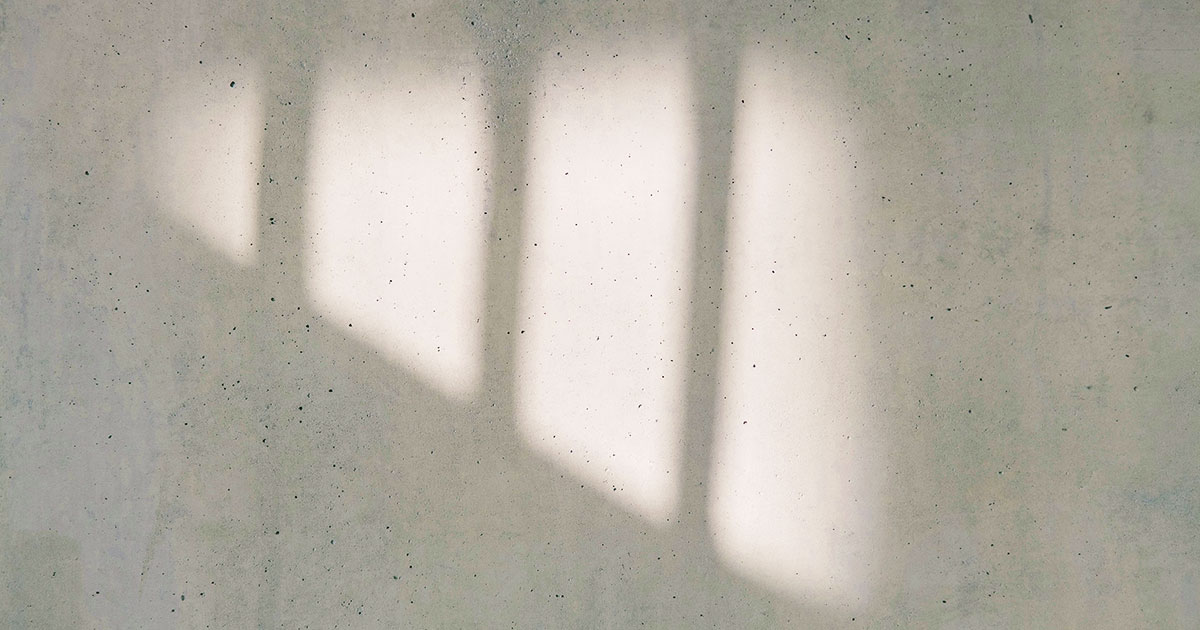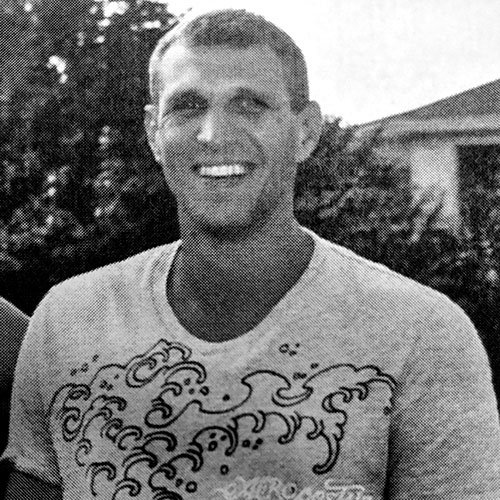FROM THE INSIDE
★ ★ ★ ★
A FRIEND IN A DARK PLACE

By Ryan M. Moser
Being incarcerated teaches you to adapt to a dangerous environment while surrounded by men who do not have your best interests at heart. Everyone seems to be trying to run game on you, and after a while, it gets to the point that you can’t believe anything you see or hear. It’s easy to become jaded behind bars.
Inside prison something as simple as a casual nod or offering to buy someone a Coke can be misconstrued. Most inmates are institutionalized and believe that everyone’s out to get them at all times—the usual advice from old-timers to newbies: Don’t trust anyone in here. This is not always a bad way of thinking in the penitentiary, but an awful way to live your life. In a place where saying the wrong thing can get you hurt, it’s safer to just keep your head down and your mouth shut. The consequences of one misunderstanding can be fatal, so I act like the Invisible Man.
When you come to prison, you lose your social support system, and something as simple as not having a friend to talk to can be emotionally crippling. Having grown up with many acquaintances, I know the importance of being able to confide in someone when times are hard, and prison is a place where you could really use someone to lean on. After all, listening to problems and giving advice is what friends do.
After I was sentenced to eight years for burglary, I didn’t really think about the fact that I would no longer have friends—I was more concerned about being away from my family and son. I guess I’d never really taken time to consider how important friendship was, and I didn’t know how much it meant to me until it was gone. I’d taken it for granted that I was surrounded by friends my entire life.
Seven years ago, against all commonsense and expectations, I met a new best friend while in a correctional institution. I was living in a self-betterment dormitory and sitting in the tv room watching football when a friendly-looking guy sat down next to me.
“Hi, I’m Tom.”
Half-Spanish, half-Greek, and unassuming, Tom (not his real name) was about my age and looked like someone’s next door neighbor or a softball coach. He was clean-cut and congenial, without the shadiness of most congenial men behind bars.
At first, I was apprehensive of his forwardness. We made some small talk about the game and I asked him what he did for work on the streets. I remember feeling normal for a brief moment, like I was meeting a kind stranger at a barbeque or in the check-out line at Publix. In a very self-effacing way, Tom offered me something that no typical inmate does upon first meeting someone in prison—the truth.
“I was a geometry teacher. I lived a good life but I screwed up big time. I got into a relationship with one of my students and it cost me everything and everyone I’ve ever loved.”
I hesitated. However, when he shared how he’d changed and only wanted a second chance, I felt connected to him. “Well … I stole from my fiancé and future in-laws, so who am I to judge.”
Tom’s candor made me want to get to know him better, and we hit it off pretty good. We spent time together every day talking about movies and our kids, playing chess and telling stories about growing up. Mine were all about living outside of Philly; he had fewer roots and moved around a lot with his single mom. We shared a sense of humor and had funny anecdotes on every subject. Although we were different in many ways, I could tell that Ed and I shared a mutual skill-adapting to survive in our environment like chameleons.
As the years went by, Tom and I lived as roommates and became co-workers, facilitating classes in our program dorm and eventually becoming as close as brothers. We even fought like real brothers. I learned about his flaws and he mine, but instead of just accepting them as most friends do, we helped each other to analyze our shortcomings, in an effort to become better fathers and husbands and human beings. Talking about my anger helped. Tom admitted his ADD.
was distracting. We annoyed the hell out of one another, but always came back for more.
We lifted each other up in a place that liked to beat you down.
There was one underlying problem that bothered me as Tom evolved from stranger to friend to family—the length of his sentence. Having received 25 years, he wouldn’t be released until his fifties. I knew that I was getting out soon and he would be left behind to deal with the daily minutia and violence of prison … and I felt guilty.
I never thought that I would meet someone inside that I actually cared enough about to think these things, but looking around, I could see that other men formed bonds that ran deep too. Sometimes it was in the misguided structure of a gang; other friendships were based on geography or race; some men just befriended anyone who would talk to them. I learned that in times of crisis, people reach out to those around them for comfort.
Once Ed and I had co-facilitated a class based on the “Band of Brothers” DVD series, a heart-wrenching depiction of leadership and friendship during World War Two. It was in a small classroom, sitting back against the wall and looking at my buddy, that I realized how important friends are during a traumatic time in your life. I’d felt that way once before prison—after my divorce. It was my group of best friends that pulled me out of the pit back then, and now it was Tom who did it while I was inside.
He is the only man who will ever know how I felt when my father died and I couldn’t go to the funeral. Or the callousness of my surroundings during a time of mourning. And no one will ever understand his mother’s grief like I do, after sitting in the visitation park with her and seeing the look she gave her only son, knowing that she could pass on before he’s released.
Having a friend during our most vulnerable moments in life, allows a conduit for worry and anxiety: Tom cried next to me when his ex-wife remarried, and I shared my fears about being a recovering addict afraid of relapsing. Inside prison, it feels good to know that someone has your back emotionally, and would be willing to fight for you if it ever came to that.
I take seriously the responsibility of being a good friend; 1 am loyal if nothing else. I’m big and tough, and several men have thought twice about messing with my brother because of me. Tom’s meekness—not weakness, he’s a black belt in Taekwondo—meant some prisoners tried with him, but I would defend my friend. Every time. And I know that he would do the same for me.
I don’t know how I would have gotten through the last seven years—the darkest period of my life—without my best friend. I often think of how Tom will react when I’m gone. If he will feel a void. I wonder how he will handle the day I walk out of prison, or seeing me on a video visit as a free man.
When I asked Tom how he felt about me going home soon, he told me honestly:
“It’s not jealousy, envy, or resentment that I’ll feel when you go home. It will be a sense of victory … a feeling that somebody I know made it to the end of their sentence, so I can too. I’ll feel a sense of surrogate freedom, as if a piece of me is going home with you.”
It helped me to hear this from my friend and I know that a part of me will still be inside prison until he gets out too.
“No matter what happens to me, knowing that you’re not swallowed up by this place is worthy of celebration. You get a new beginning,” Tom told me, “and that’s good news.”
It’s hard to find a friend in prison, but I’ve learned that even behind bars you can meet someone who has nothing to gain from you. Someone who makes a gesture of goodwill with no expectations, or who turns down a chance to take advantage of you. When that happens, it’s okay to let your guard down and feel a little humanity again.

Ryan M. Moser is a recovering addict serving a ten-year sentence in the Florida Department of Corrections for a nonviolent property crime. Previous publications include Evening Street Press, Storyteller, Santa Fe Literary Review, The Progressive, themarshallproject.org, medium.com, thewildword.com, thestartup.com, and more. In 2020, his essay “Injuries Incompatible with Life” received an Honorable Mention award from PEN America, including publication on pen.org. Ryan is a Philadelphia native who enjoys yoga, playing chess, and performing live music. He is a proud father of two beautiful sons.
This column was made possible with the help of Exchange for Change, a non-profit based in Florida that teaches writing in prisons and runs letter exchanges between incarcerated students and writers studying on the outside.
Exchange for Change believes in the value of every voice, and gives their students an opportunity to express themselves without the fear of being stigmatized. Their work is based on the belief that when everyone has the ability to listen and be heard, strong and safe communities are formed, and that with a pen and paper, students can become agents of change across different communities in ways they may otherwise have never encountered.
























0 Comments